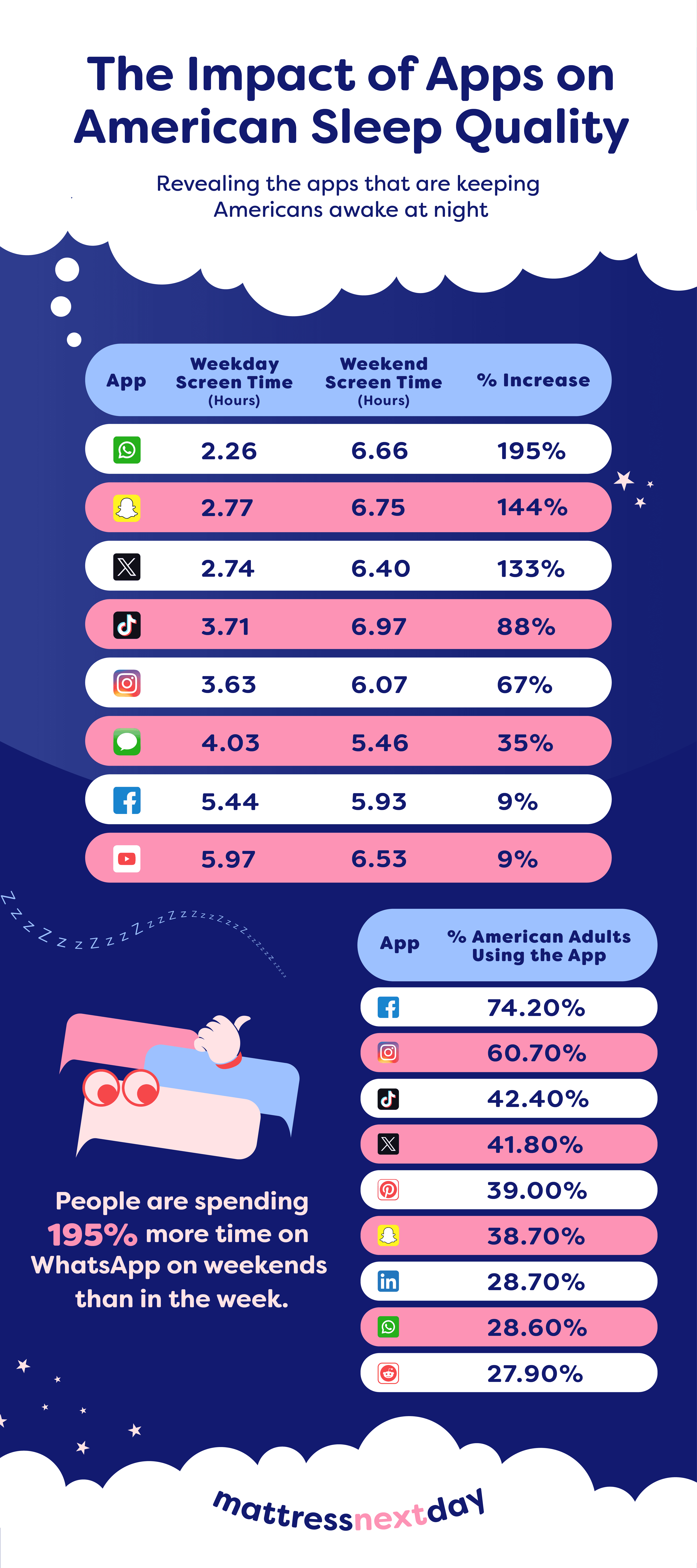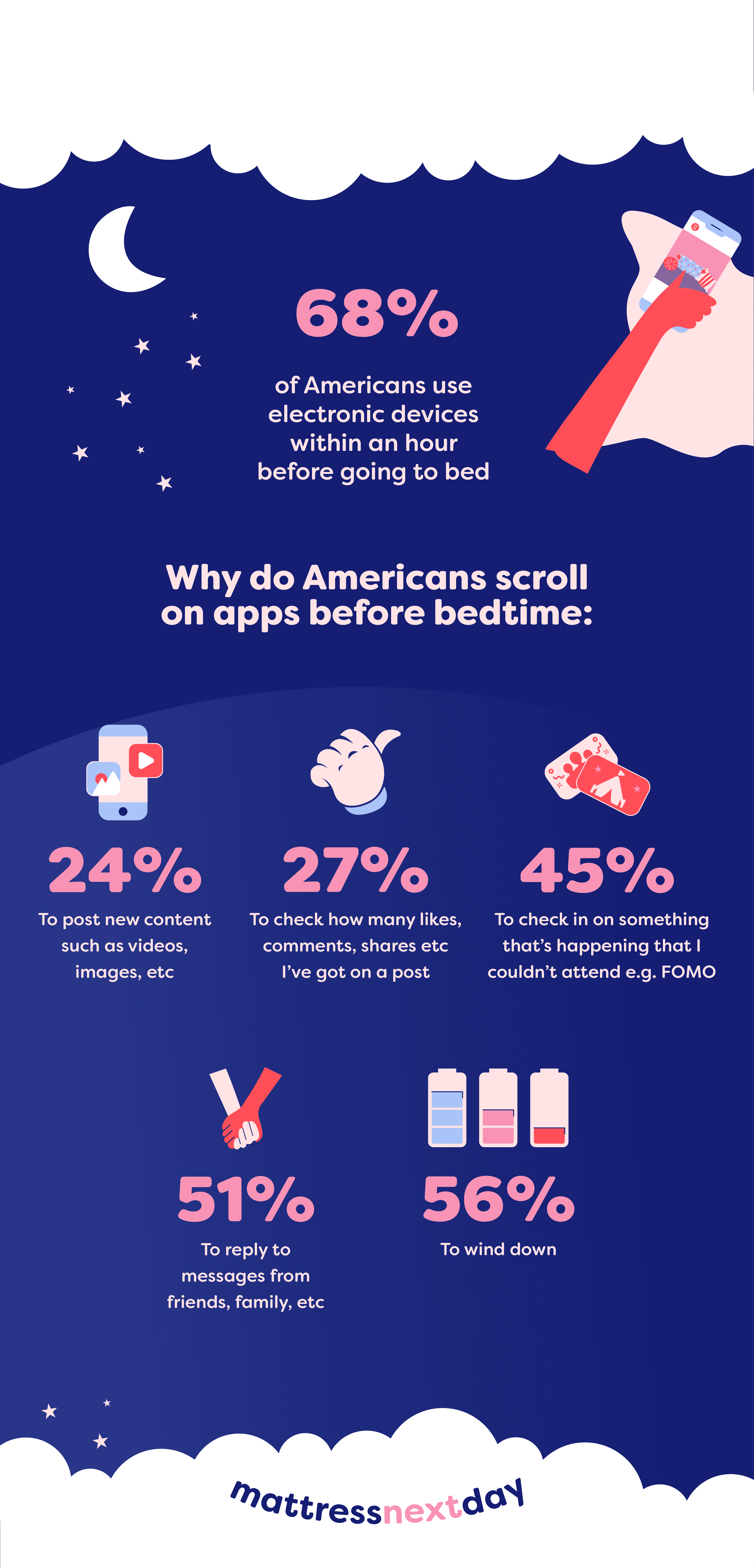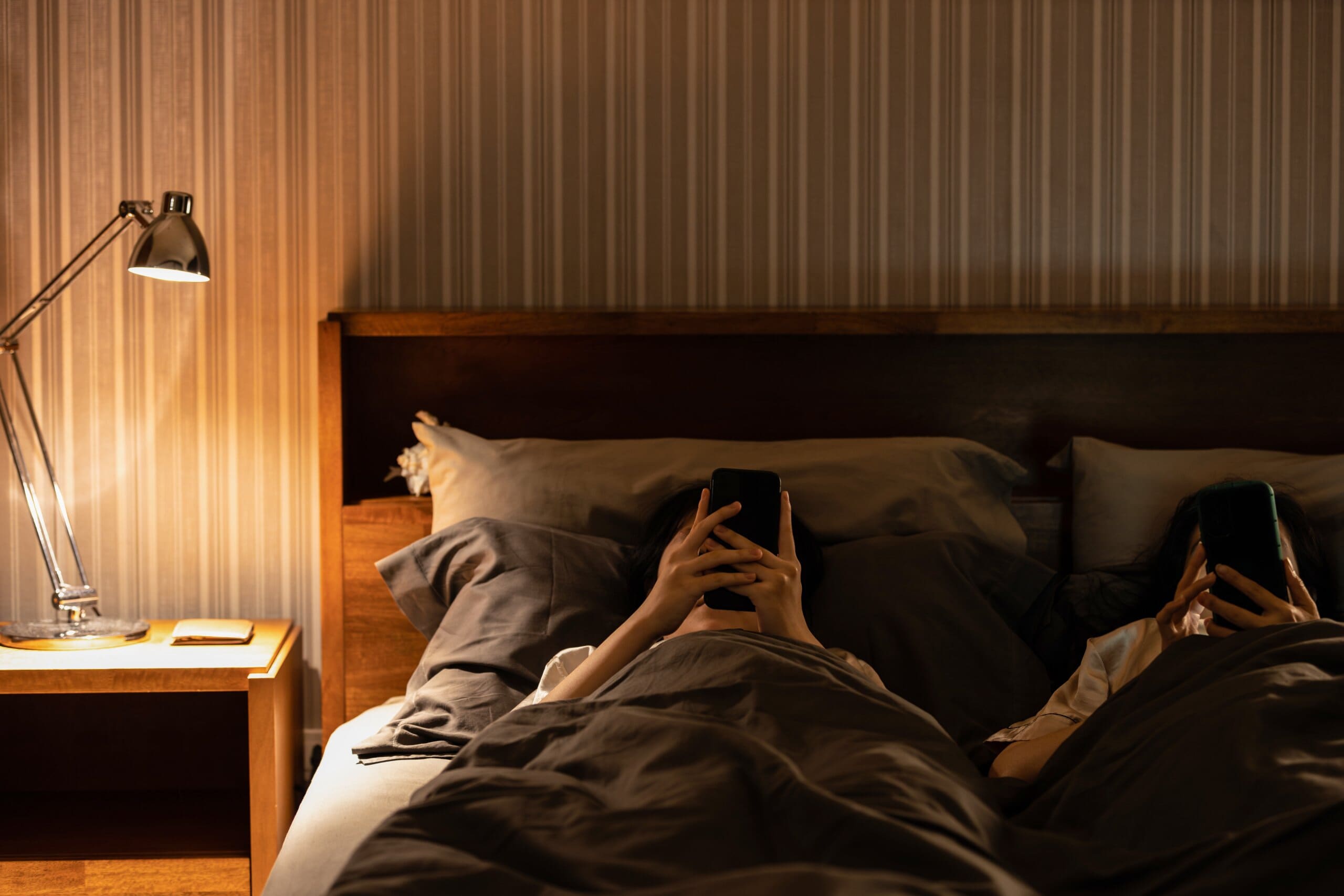What do you do in the hour before you go to sleep? Do you watch a couple of episodes of your favourite show, listen to a podcast, or try some mindful meditation? Or instead, are you scrolling through your phone, checking each and every one of your apps?
Whilst social media is a part of our everyday lives, if you’re guilty of using your phone right before bed, you could be tricking your brain into thinking it’s still daytime, thanks to the blue light your phone emits. With that in mind, we decided to survey the American population, to see how many are on their phones before bed, and the apps they use that keep them awake.

WhatsApp usage increases 195% on the weekends
During the week, YouTube is the most popular app amongst Americans, with the average person spending nearly six hours during the working week watching videos. This is closely followed by Facebook, at 5.44 hours, and Messages, at 4.03.
Technically, WhatsApp is used the least, at just under two and a half hours over Monday to Friday. However, this increases by a huge 195% over the weekend, with the average American spending 6.66 hours on it on Saturday and Sunday, making plans with friends.
Snapchat and X see the second and third biggest increases in usage over the weekends, at 144% and 133% respectively; whereas Facebook and YouTube consumption stays largely the same, at just a 9% increase.
Facebook is the most popular app in the US
We then surveyed our 1,500 Americans to find out the apps that they actively use, and Facebook came out on top, with three quarters of US citizens using it. This is followed by Instagram, at 60.7%, and TikTok, at 42.4%.
Interestingly, despite seeing the largest increase in usage over the weekend, WhatsApp is one of the least downloaded, with just over a quarter of Americans using it, at 28.6%.
68% of Americans use electronic devices before bed
Despite there being lots of research showing that blue light can affect sleep, more than two-thirds of Americans admit to using phones, iPads, and other electronic devices before bed.
When asked why, 56% said to wind down, and 50% said so they could reply back to messages from family and friends sent earlier in the day. To a lesser extent, people said they scroll on their apps before bed to look at something they couldn’t attend, to check the number of likes and comments on something they’ve posted, or to post new content on their social channels.

Top tips for getting a peaceful night’s sleep
If you find you’re struggling to get to sleep, then just know you’re not alone. See if you can get better shut-eye by following these three simple steps.
1. Create a routine
Creating a bedtime routine that you follow each night can help your body to relax, as it knows it’s time to wind down. So, have a cut-off time for drinking caffeine and eating big meals, and find an activity that helps you to relax – whether it’s meditating, or snuggling down with a good book.
2. Step away from your phone
56% of you may think your phone helps you to wind down, but it actually makes it harder to fall to sleep. This is because the blue light from your phone suppresses the production of melatonin, which is the hormone that you need asleep. Make a rule where you turn off your electronic devices at least one hour before bed, and use an analog clock in your room to reduce the temptation to check the time on your phone during the night.
3. Transform your bedroom into a sleep zone
Are you guilty of watching TV, doing work, or scoffing snacks in bed? It could be the reason why you’re struggling to get to sleep! Move all of those tasks to a different room, and your body will soon subconsciously know that the bedroom is a place for sleeping, meaning you’ll find it easier to switch off and relax.
With so many benefits of a good night’s sleep, if you struggle to get your seven hours and find yourself waking up constantly feeling unrefreshed, now’s the time to start taking steps to help get some shut-eye.
Of course, one other way of getting a great night’s sleep is having the right mattress. From soft to extra firm mattresses, pocket sprung to memory foam; we have a wide choice available, so you’re guaranteed to find exactly what you’re looking for, with us.
Methodology
We conducted desk research to find the most popular apps in the US, and then ran a survey with 3Gen on 1,500 Americans to uncover the apps that they use the most, and why they use their phones before bed.




